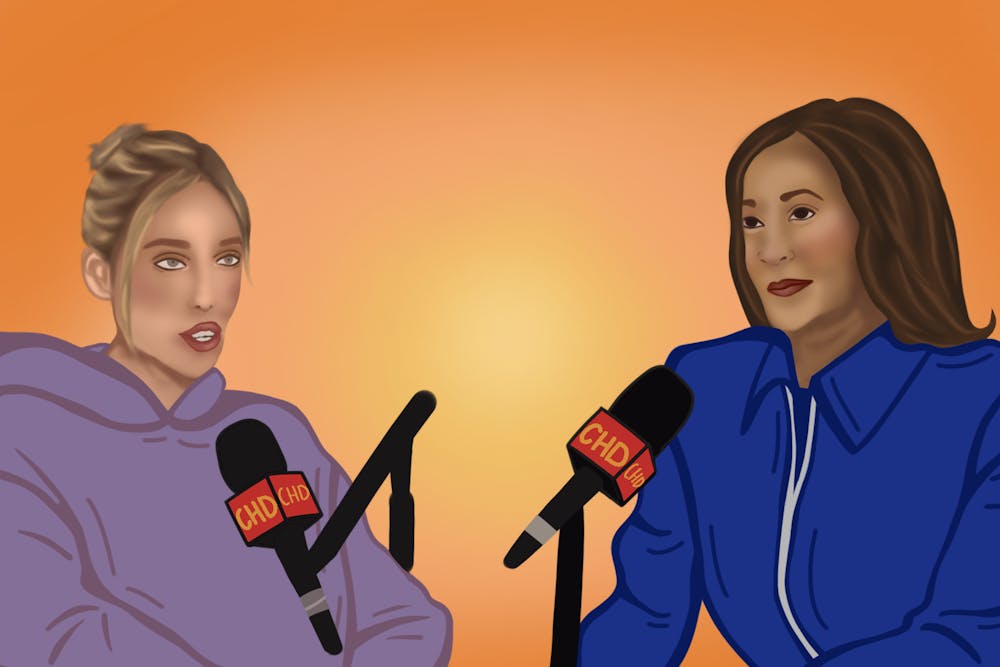It’s no surprise that politicians are gunning for the young vote. But are these efforts rooted in genuine political engagement, or are they just the latest craze driven by the newest influencers: electoral candidates?
The intricacies of Gen Z culture are foreign to practically everyone in older generations. Politicians have tirelessly worked to decode this culture and connect with young voters. The Kamala Harris campaign, particularly, has been blatant about chasing young votes.
Recently, Harris joined Alex Cooper on her podcast “Call Her Daddy.” Harris said her goal in going on the podcast was to connect with the listeners, many of whom are young, politically inactive women.
In the episode, Harris and Cooper discussed sexual abuse, student debt, reproductive rights, the expense of having a family and general advice for women. During this podcast, Harris spoke directly to young voters, in an honest and compassionate way, which is unique from the rehearsed, harsh messages usually shared on politically-charged platforms. Through this podcast appearance, Harris very likely increased the votes she will receive from young women.
The Harris campaign’s pursuit of the young vote extends to social media. The Kamala HQ account on X changed its backdrop to lime green with the words “kamala hq,” imitating the “BRAT” album cover after receiving an endorsement from Charli XCX. The account’s bio, “providing context,” references a meme arising from a 2023 speech by Harris.
The Kamala HQ account on TikTok often posts videos following current trends and creating memes of their opponent's speeches and rallies in a casual and almost authentically Gen Z way.
By immersing their campaign in popular culture and leaning into memes, the Harris campaign seeks relevancy and hunts down the votes of Gen Z. While this strategy does successfully reach young people, it effectively turns politicians into influencers and drives voting to become the newest trend, debasing politicians, their platforms and politics in general.
Voting and political involvement have become stickers to post on Instagram, a free coffee in the Pit or a celebrity to listen to. Politicians have become memes, talk show guests and social media personalities.
Young people shouldn’t need a celebrity post or a free pin to care about what’s going on in their world. Politicians shouldn’t have to become influencers to get young people to listen.




